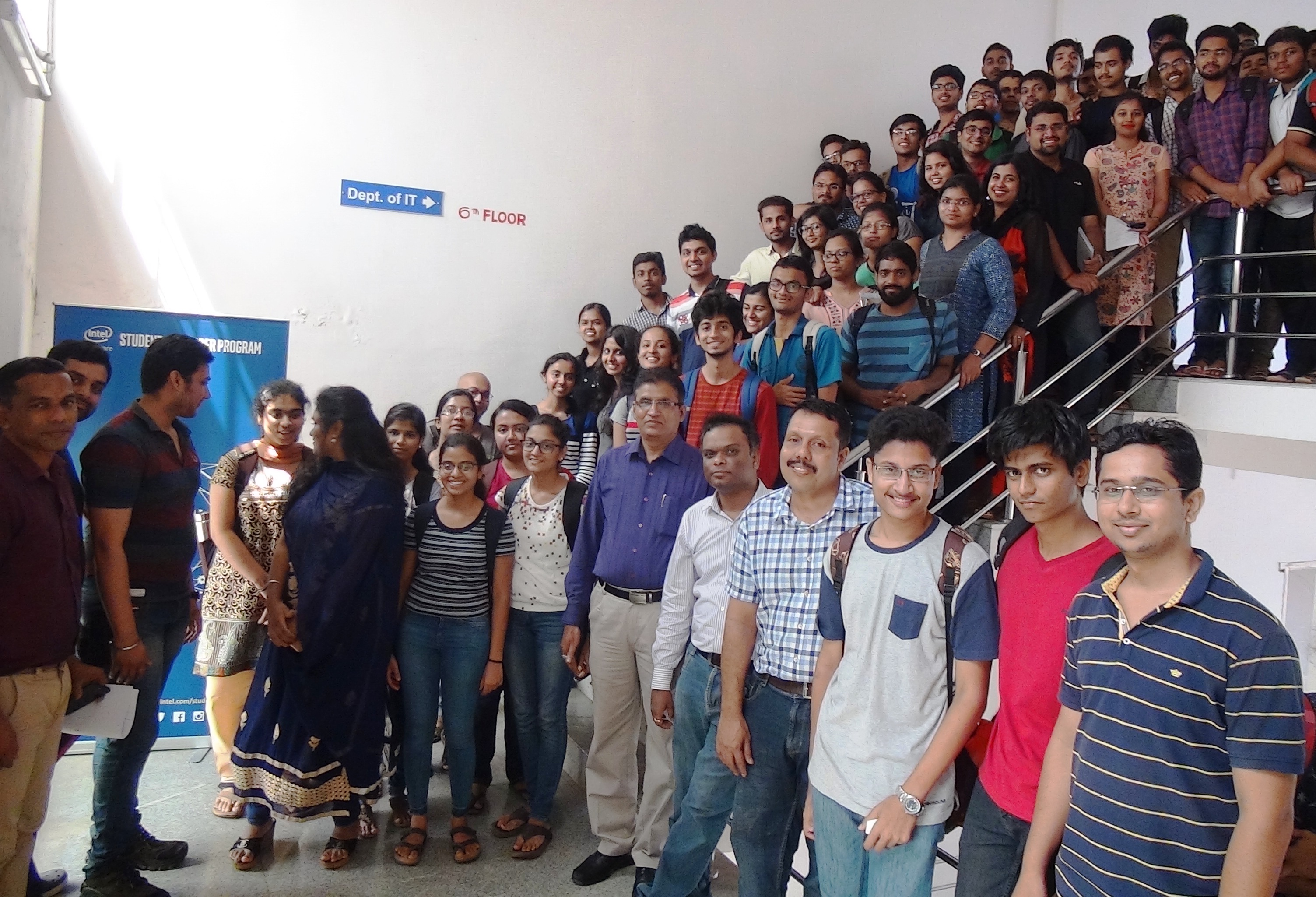
B.Tech (Information Technology)
The B.Tech programme in Information Technology was the first program to be offered by the Department when it was established in the year 2000. It has since grown from strength to strength and is currently one of the top and most sought after disciplines at NITK Surathkal. The course currently has an average intake of 110 students per year. The programme is innovatively designed to cater to global and industry demands and offers a balanced coverage of foundation concepts and application oriented courses. Our students have consistently achieved excellent placements of nearly 100% each year and several have been accepted/are pursuing post graduate and doctoral studies at reputed National and International Universities.
B.Tech (IT) Curriculum [2023]
B.Tech (IT) Curriculum [2022]
B.Tech (IT) Curriculum [2021]
B.Tech (IT) Curriculum [2020]
Programme Educational Objectives
[PEO1] To provide students with a strong and sustainable foundation in mathematics, science and engineering fundamentals to enable them to devise competent solutions to complex hardware/software problems and also to pursue advanced research.
[PEO2] To deliver a comprehensive education spanning the breadth of Information Technology and related engineering fields to ensure that graduates have the core competency to be successful in Industry and/or excel in higher studies.
[PEO3] To train students to work as part of teams on multidisciplinary projects and in diverse professional environments to comprehend, analyze, design and create innovative solutions for real life problems, in alignment with society, global economy and emerging trends.
[PEO4] To create a learning environment which emphasizes the importance of professionalism, ethics & exceptional communication skills and also infuses a curious bent of mind in students to inspire a quest for life-long learning.
Programme Outcomes
[PO1] Engineering Knowledge: Apply the knowledge of mathematics, science, engineering fundamentals, and an engineering specialization to the solution of complex engineering problems.
[PO2] Problem analysis: Identify, formulate, review research literature, and analyze complex engineering problems reaching substantiated conclusions using first principles of mathematics, natural sciences, and engineering sciences.
[PO3] Design/development of solutions: Design solutions for complex engineering problems and design system components or processes that meet the specified needs with appropriate consideration for the public health and safety, and the cultural, societal, and environmental considerations
[PO4] Conduct investigations of complex problems: Use research-based knowledge and research methods including design of experiments, analysis and interpretation of data, and synthesis of the information to provide valid conclusions.
[PO5] Modern tool usage: Create, select, and apply appropriate techniques, resources, and modern engineering and IT tools including prediction and modeling to complex engineering activities with an understanding of the limitations.
[PO6] The engineer and society: Apply reasoning informed by the contextual knowledge to assess societal, health, safety, legal and cultural issues and the consequent responsibilities relevant to the professional engineering practice.
[PO7] Environment and sustainability: Understand the impact of the professional engineering solutions in societal and environmental contexts, and demonstrate the knowledge of, and need for sustainable development.
[PO8] Ethics: Apply ethical principles and commit to professional ethics and responsibilities and norms of the engineering practice.
[PO9] Individual and team work: Function effectively as an individual, and as a member or leader in diverse teams, and in multidisciplinary settings.
[PO10] Communication: Communicate effectively on complex engineering activities with the engineering community and with society at large, such as, being able to comprehend and write effective reports and design documentation, make effective presentations, and give and receive clear instructions.
[PO11] Project management and finance: Demonstrate knowledge and understanding of the engineering and management principles and apply these to one’s own work, as a member and leader in a team, to manage projects and in multidisciplinary environments.
[PO12] Life-long learning: Recognize the need for, and have the preparation and ability to engage in independent and life-long learning in the broadest context of technological change.
Programme Specific Objectives
[PSO1] Demonstrate the use of core Information Technology and its applications in the fields of Artificial Intelligence, Cyber-physical Systems and Data Science.
[PSO2] Inculcate the ability to design effective IT solutions to complex problems through the use of project based and experiential learning methodologies.

